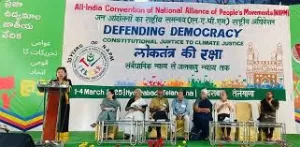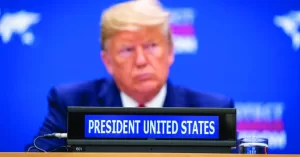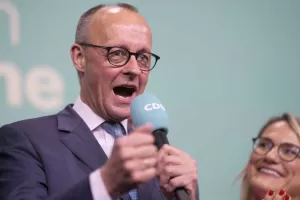❈ ❈ ❈
Who’s Behind the Coup in Peru?
José Carlos Llerena Robles and Vijay Prashad
Pedro Castillo of the Perú Libre party has already begun to receive congratulations from around the world. It is beyond doubt that he won the June 6 presidential election. The Peruvian electoral authority, ONPE, announced the final results: Castillo won 50.127 per cent of the vote (8.84 million votes), while his opponent in the second round, Keiko Fujimori of Fuerza Popular, won 49.873 per cent (8.79 million votes). This is with 100 per cent of the votes. By all accounts, Fujimori has lost the election.
However, Fujimori – the candidate of the right – has refused to concede. In fact, she has hired the very best of Peru’s legal minds to challenge the election results. Within hours of the election tallies being available, Fujimori’s team filed 134 challenges within the window of opportunity; they have another 811 challenges in hand. Anyone who knows the Peruvian legal fraternity will realize that some of the most important names are on the Fujimori roster: Echecopar; Ghersi; Miranda & Amado; Payet, Rey, Cauvi, Pérez; Rodrigo, Elías & Medrano; Rubio Leguía Normand; and Rebaza, Alcázar & De Las Casas. In Lima alone, the team had more than 30 lawyers at work.
The Fujimori team had assembled these lawyers before the vote, anticipating the possibility of a Castillo victory and the need to tie him up in the courts. The white-collar legal army put in place a racist lawfare strategy; their entire game has been to invalidate the votes that are at the core of Castillo’s support base, namely the Indigenous communities of Peru.
The Role of the US
The United States appointed a new ambassador to Peru. Her name is Lisa Kenna, a former adviser to former US Secretary of State Mike Pompeo, a nine-year veteran at the Central Intelligence Agency (CIA), and a US secretary of state official in Iraq. Just before the election, Ambassador Kenna released a video, in which she spoke of the close ties between the United States and Peru and of the need for a peaceful transition from one president to another. The “presidential transition sets an example for the whole region,” she said, as if anticipating a serious challenge. If anyone would know about interference in the electoral process in Latin America, it would be the United States.
It would also be key members inside the team of Keiko Fujimori, such as Fernando Rospigliosi. Rospigliosi, a former interior minister under President Alejandro Toledo, joined the Fujimori team for just this kind of contest (for years, Rospigliosi had been very critical of the crimes committed by Fujimori’s father, President Alberto Fujimori, who is now serving a prison sentence). Working with the US Embassy is on the resume of Rospigliosi. In 2005, the former left-leaning military officer Ollanta Humala was set to enter the presidential race in April 2006. Every indication suggested that Humala, who had attempted a coup against Keiko Fujimori’s father President Alberto Fujimori in 2000, has mass support. Some even thought that Humala would follow both Hugo Chávez of Venezuela and Evo Morales of Bolivia to draw Peru leftward. In that period, Rospigliosi went to the US Embassy to seek support in preventing a Humala victory in 2006.
On November 18, 2005, Rospigliosi and ex-Director of National Defense Rubén Vargas came for lunch to the embassy. They offered their “concern over prospects that ultranationalist Ollanta Humala is establishing himself as a political force to be reckoned with.” Rospigliosi and Vargas both worked for an NGO called Capital Humano y Social (CHS), which was under contract with the US government’s Law Enforcement and Narcotics Affairs Section (NAS). Both Rospigliosi and Vargas asked the US Embassy to urge their communications contractor Nexum to “monitor coverage of Humala and promote anti-Humala news and commentary in the coca regions.” They wanted the US Embassy to use its considerable resources to undermine Humala. These are old-fashioned dirty tricks.
The United States was worried about Humala, about his statements against the US military presence in Peru and his ties to Hugo Chávez. What Rospigliosi and Vargas said to the US Embassy pleased the US. Humala lost the election in 2006. He would win in 2011, beating Keiko Fujimori; but by 2011, Humala had established himself as a candidate of the neoliberals, someone who the United States saw as harmless and useful. On May 19, 2011, Humala signed a text that yoked him to the neoliberal agenda (“Compromiso en Defensa de la Democracia”). At the gathering, he was blessed by Peru’s right-wing godfather, the novelist Mario Vargas Llosa.
Vargas Llosa is a key figure here, using the prestige of his 2010 Nobel Prize in literature as weight. As results came in that Pedro Castillo has swept rural Peru, Vargas Llosa disparaged voters in the rural areas; he warned that Peru would become like Venezuela and that it would be a catastrophe for Peru. Marinated in the bile of racism, Vargas Llosa joined other intellectuals of the extreme right to belittle the Peruvian working class and peasantry, hoping that such remarks would give sufficient cover to the coup process underway inside the ONPE.
Everything seems prepared: the US ambassador with CIA credentials, a dirty tricks man with a habit of going to the embassy for help and with a record of asking the United States to malign the left, a grand old man with an allergy to his own people, and a candidate whose father was backed by the oligarchy when he conducted a self-coup in 1992.
Pedro Castillo continues to hold the streets. The crowds will gather. They do not want their election to be stolen. But there is fear in Peru. Darker forces swirl about. Will the people be able to defeat them?
(José Carlos Llerena Robles is a popular educator, member of the Peruvian organization, La Junta, and representative of the Peruvian chapter of Alba Movimientos. Vijay Prashad is an Indian historian, editor and journalist, and the director of Tricontinental: Institute for Social Research. Courtesy: Globetrotter.)
❈ ❈ ❈
Rural Teacher Pedro Castillo Poised to Write a New Chapter in Peru’s History
Medea Benjamin and Leonardo Flores
With his wide-brimmed peasant hat and oversized teacher’s pencil held high, Peru’s Pedro Castillo traveled the country ahead of the June 6 election exhorting voters to get behind a call that has been particularly urgent during this devastating pandemic: “No más pobres en un país rico”— No more poor people in a rich country. In a cliff-hanger election with a huge urban-rural and class divide, it appears that the rural teacher, farmer, and union leader is about to make history by defeating powerful far-right candidate Keiko Fujimori, scion of the country’s political “Fujimori dynasty.”
With 95 percent of the vote counted, Castillo led with 50.3 percent over Fujimori’s 49.7 percent. With her opponent in the lead by a narrow margin, now Fujimori is challenging the results, alleging widespread fraud. Her campaign has only presented evidence of isolated irregularities, and so far there is nothing to suggest a tainted vote. However, she can challenge some of the votes to delay the final results, and much like in the United States, even an allegation of fraud by the losing candidate will cause uncertainty and raise tensions.
Castillo’s victory will be remarkable not only because he is a leftist teacher who is the son of illiterate peasants and whose campaign was grossly outspent by Fujimori. But also, there was a relentless propaganda attack against him that touched on historical fears of Peru’s middle class and elites. This campaign was similar to what happened recently to progressive candidate Andrés Arauz, who narrowly lost Ecuador’s presidential elections in April, but even more intense.
Grupo El Comercio, a media conglomerate that controls 80 percent of Peru’s newspapers, led the charge against Castillo. Its media outlets accused him of being a terrorist with links to the Shining Path, a guerrilla group whose conflict with the state between 1980 and 2002 led to tens of thousands of deaths and left the population traumatized. Castillo’s link to the Shining Path link is flimsy: while a leader with the education workers’ union SUTEP, Castillo is said to have been friendly with the Movement for Amnesty and Fundamental Rights (Movadef), a group alleged to have been the political wing of the Shining Path. In reality, Castillo was a rondero when the insurgency was most active. Ronderos were peasant self-defense groups that protected their communities from the guerrillas and continue to provide security against crime and violence.
Two weeks before the elections, on May 23, 18 people were massacred in the rural Peruvian town of San Miguel del Ene. The government immediately attributed the attack to the remnants of the Shining Path involved in drug trafficking, although no group has taken responsibility yet. The media linked the attack to Castillo and his campaign, whipping up fear of more violence should he win the presidency. Castillo denounced the attack and reminded Peruvians that similar massacres had occurred in the run-up to the 2011 and 2016 elections. For her part, Fujimori suggested Castillo was linked to the killing.
On the economic front, Castillo has been accused of being a communist who wants to nationalize key industries and would turn Peru into a “cruel dictatorship” like Venezuela. Billboards along Lima’s main highway asked: “Would you like to live in Cuba or Venezuela?” referring to a Castillo win. Newspapers linked Castillo’s campaign to the devaluation of the Peruvian currency and warned that a Castillo victory would hurt low-income Peruvians the most because businesses would shutter or move overseas. Time and time again, the Castillo campaign has clarified that he is not a communist and that his aim is not to nationalize industries but to renegotiate contracts with multinationals so that more of the profits stay with the local communities.
Meanwhile, Fujimori was treated with kid gloves by the media during the campaign, with one newspapers claiming that “Keiko guarantees work, food, health and an immediate reactivation of the economy.” Her past as a first lady during her father Alberto Fujimori’s brutal rule is largely ignored by corporate media. She is able to claim that “fujimorismo defeated terrorism” without being challenged on the horrors that fujimorismo inflicted on the country, including the forced sterilization of over 270,000 women and 22,000 men for which her father is on trial. He is currently in prison over other human rights abuses and corruption, though Keiko promised to free him if she won. The media also ignored the fact that Keiko is out on bail as of last year, pending a money-laundering investigation, and without presidential immunity, she will probably end up in prison.
The international media was no different in its unbalanced coverage of Castillo and Fujimori. Bloomberg warned that “elites tremble” at the thought of Castillo as president, and a Financial Times headline screamed “Peru’s elite in panic at prospect of hard-left victory in presidential election.”
Peru’s economy has grown impressively over the past 20 years, but that growth did not raise all boats. Millions of Peruvians in the countryside have been abandoned by the state. On top of that, like many of its neighbors—including Colombia, Chile, and Ecuador—Peru has underinvested in health care, education, and other social programs. Such choices so decimated the health care system that Peru now has the shameful distinction of leading the entire world in per capita Covid-19 deaths.
In addition to the public health disaster, Peruvians have been living through political turmoil marked by an extraordinary number of high-profile cases of corruption and four presidents in three years. Five of its last seven presidents faced corruption accusations. In 2020, Congress impeached and unseated President Martín Vizcarra, also accused of corruption, and replaced him with Manuel Merino. Many denounced the maneuver as a parliamentary coup, leading to several days of massive street protests. Just five days into his tenure, Merino resigned and was replaced by current interim President Francisco Sagasti.
One of Castillo’s key campaign promises is to convoke a constitutional referendum to let the people decide whether they want a new constitution or wish to keep the current one. Written in 1993 under the regime of Alberto Fujimori, the current constitution entrenched neoliberalism into its framework.
“The current constitution prioritizes private interests over public interests, profit over life and dignity,” reads Castillo’s platform. His campaign proposes that a new constitution include: recognition and guarantees for the rights to health, education, food, housing, and internet access; recognition for Indigenous peoples and Peru’s cultural diversity; recognition of the rights of nature; redesign of the state to focus on transparency and citizens’ participation; and a key role for the state in strategic planning to ensure that the public interest takes precedence.
On the foreign policy front, Castillo’s victory will represent a huge blow to U.S. interests in the region and an important step towards reactivating Latin American integration. He has promised to withdraw Peru from the Lima Group, an ad hoc committee of countries dedicated to regime change in Venezuela.
In addition, Castillo’s Peru Libre party has called for expelling USAID and for the closure of U.S. military bases in the country. Castillo has also expressed support for countering the Organization of American States and strengthening both the Community of Latin American and Caribbean States (CELAC) and the Union of South American Nations (UNASUR). The victory is also a good omen for the Left in Chile, Colombia, and Brazil, each of which will have presidential elections over the next year and a half.
Castillo will face a daunting task, with a hostile Congress, a hostile business class, a hostile press, and most likely, a hostile Biden administration. The support of millions of angry and mobilized Peruvians demanding change, along with international solidarity, will be key to fulfilling his campaign promise of addressing the needs of the poorest and most abandoned sectors of Peruvian society.
[Medea Benjamin, co-founder of the peace group CODEPINK and author of books on the Middle East and Latin America, is in Peru with an election observer delegation organized by Progressive International. Leonardo Flores is a Latin American policy expert and campaigner with CODEPINK. Article courtesy: North American Congress on Latin America (NACLA), an independent, nonprofit organization.]




